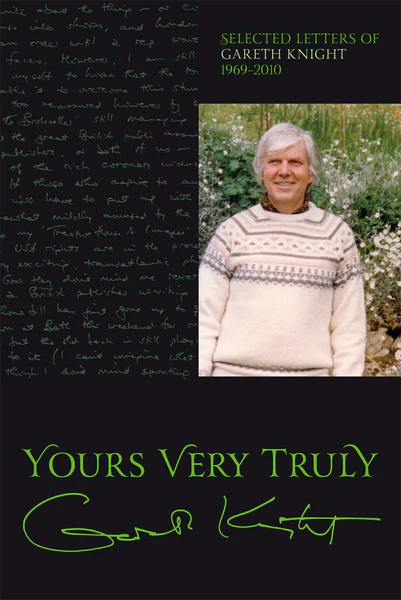The great tales never end: Essays in memory of Christopher Tolkien. Edited by Richard Ovenden & Catherine McIlwaine. Bodleian Library Publishing: Oxford, UK, 2022. pp. 231.
I feel enormous gratitude to Christopher Tolkien (1924-2020) for the extraordinary work he did in editing and making available his father's unpublished works, and the drafts of his published works. These have vastly enhanced by enjoyment, and depth of appreciation, of JRR Tolkien over the past several decades. As Tom Shippey puts it in this volume:
It may be said without any qualification at all that no author has ever enjoyed a better or better-qualified literary executor than Tolkien found in his son Christopher.
Yet, although I 'know' and like his literary persona as well as almost anybody; I have until now been able to discover very little about Christopher's life. The Great Tales Never End at long last provides some of the key information I sought.
My main criticism of this volume is, indeed, that there is not more focus on Christopher's life, and I would have liked more detail about the work he did in the decades before he began to edit his father's unpublished papers.
I would also have appreciated extra in the way of memoirs of Christopher from friends and relations. TGTNE gives us a poem and a short memoir from sister Priscilla; but I would have enjoyed a lot more of this type of material (which could have been supplied by several of the contributors to later chapters). As things stand, Christopher's real-life personality is still rather obscure to me.
The book takes the loose 'form' of a Festschrift - with work by eleven authors. It opens with a biographical introduction, timeline and bibliography of Christopher's life by Catherine McIlwaine. This was excellent, and included exciting quotes from thus-far unpublished correspondence; although I would have wished it several-fold longer!
The information here confirms what I had previously heard but in confidence, and was implied by some remarks in a memoir; that Christopher's academic career was hampered and delayed by his third class bachelor's degree, when a first class was usually expected and required (and might lead swiftly to a permanent academic position). The unexpected failure to attain 'a first' is here explained by depression and ill-health following a failed love affair.
Christopher then took the longer route to academic security of obtaining a BLitt degree, the research for which led to his only solo book - an edition of Heidrek's Saga. After which he published very little, according to the bibliography (although Google Scholar mentions a paper omitted here, called The Battle of the Goths and the Huns, in Saga-Book of 1953-7).
As long ago as 1973 I myself studied The Nun's Priest's Tale in the excellent edition that Christopher produced with fellow ex-Inkling Nevill Coghill. It was an inspiring volume, which I have kept all these years - covered, as it now is, by my micrographic schoolboy pencil annotations.
Indeed; Christopher's academic reputation seems to have been based on a reputation for excellence as a teacher. He was a 'lecturer' (presumably on fixed-term contracts) for several years before being elected a Fellow of New College, Oxford in 1963 (at the rather late age of about thirty-nine). He remained in this secure and prestigious post until 1975 (aged about fifty one) when he resigned to work on editing his late father's works.
From that point onwards, starting with his father's translation of 'Sir Gawain', and for the next 45 years - Christopher certainly 'made up for lost time' as a prolifically publishing scholar!
In the end, Christopher Tolkien lived to complete his self-imposed task with The Fall of Gondolin in 2018 having been responsible for twenty-five books (according to the bibliography here); all of interest and importance to lovers of Tolkien; many of them containing the fruits of intense study and deep thought.
I shall now focus on particular aspects of a few of the chapters of TGTNE which made a particular impact on me.
Vincent Ferre presents a detailed analysis of Christopher Tolkien as 'a writer' - whose role (especially in The Silmarillion of 1977) was sometimes required to go beyond 'normal' editing; to include selection from very different versions, rearrangement of passages, and composition of linking passages of prose (although presumably Guy Gavriel Kay - his helper for The Silmarillion - should also be credited with some of this). This gave me a new insight into what Christopher actually did, his process; in relation to the materials he had to work from.
I took from Verlyn Flieger's chapter a fresh realization that the poetic description of the beginning of the world - as described in Ainulindale or Singing of the Ainur - comes to be reflected in what was originally the final words of The Lord of the Rings outside of Bag End (later moved to the Grey Havens) - where "Sam heard suddenly the sigh and murmur of the sea on the shores of Middle Earth".
The significance is that, slightly to paraphrase what the Silmarillion tells us: in water there yet lives the echo of the Music of the Ainur; so that later Men still hearken to the voices of the sea, but know not for what they listen. In a nutshell: The Silmarillion legends and LotR constitute "one long saga" - an arc from creation itself, to the eternal echoes of creation.
John Garth's chapter reinforces the importance of this concept to Tolkien by describing the process of his meticulous earlier re-dating of this section of Lost Tales - which locates the Music of the Ainur as among the very earliest examples of Tolkien's creative flowering.
Another example of the process of literary scholarship is in the chapter by Carl F Hostetter, who illustrates four examples of just how Christopher Tolkien - and himself - work on JRRT's primary manuscripts to provide vital information on dating; and therefore the compositional sequence, of drafts. This sequencing has been especially important in the case of Tolkien's draft material; since it often changed radically; spanning years, or sometimes decades, of composition.
I was fascinated by Stuart D Lee's chapter on the 1955-6 BBC Radio dramatization of The Lord of the Rings; which used the letters between Tolkien and the BBC, drafts, and annotated scripts to provide a background to these - long lost - audio-broadcasts. I was particularly struck by Tolkien's comment on the accents that he believed should be used to distinguish the characters.
It was pleasing to see my own inferences confirmed that Merry and Pippin should not have 'rustical' accents, because they were "two young hobbits of the highest birth in the land". Tolkien suggested that the genuine rustic accents (e.g. for Sam or Butterbur) ought to be characterized mainly by the 'burred' pronunciation of 'r'.
And further that elves (and other high folk) should 'trill' their 'r's in all positions of the letter (but not as much as do the Scots); whereas the dwarves should use a guttural 'r' from the soft palate (more like the Northumbrian dialect).
Aside; I noticed that in 1956 the part of Ioreth (the wise woman of Gondor) was played by the young actress Prunella Scales, who later married actor Timothy West - who (some sixty years later) was the editorial voice of Christopher Tolkien himself in the recent audiobooks of Beren and Luthien and The Fall of Gondolin! (Their son Samuel West reads the actual texts.)
Tom Shippey's chapter is titled King Sheave and the Lost Road; and discusses the especially powerful linked-concerns of Tolkien of a divine/ faery land in the west across the ocean; the once-existing sea-path to that land which is now lost but might be found again; and the idea of a 'higher/ nobler' Man (or Men) who came from the West by boat; bringing (for a while) gifts of good government, peace and prosperity in harmony with the gods' will.
Shippey argues that the King Sheave character of (?) legend was seen by Tolkien as related to Jesus Christ in some spiritual fashion - perhaps as a partial vision of Jesus for the then-pagan North?
Yet, as Shippey says, although this group of ideas haunted Tolkien through his life, and although he several times tried to incorporate it into his imaginative fictions (for example in Lost Tales, The Lost Road, The Notion Club Papers, references to Earendil and the Great Wave in The Lord of the Rings, and the published poems of Imram and Looney/ The Sea Bell) - in the end Tolkien never succeeded in finding a satisfactory narrative form that would capture this deep emotion.
I hope have said enough to indicate that there is a lot of 'good stuff' in this enjoyable, albeit heterogeneous, volume.
At its recommended retail price of forty pounds Sterling; TGTNE is perhaps too costly for the general reader; but this is presumably due to its specialized nature and probably modest audience; as well as to its superb quality as a hardback volume - with good paper, stitched binding, and very impressive maps and colour plates.
But if you are sufficiently wealthy, Tolkien-obsessed, or can get hold of a library (or secondhand, or review) copy of The Great Tales Never End; you will find a great deal of inspiration, valuable information, and plenty of fruitful novel perspectives; concerning both Christopher Tolkien and his father.


